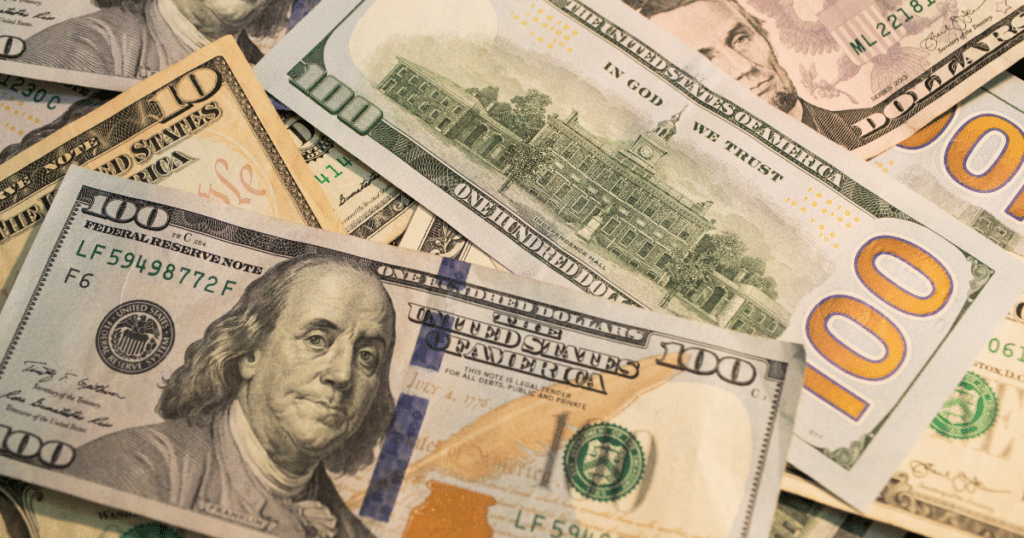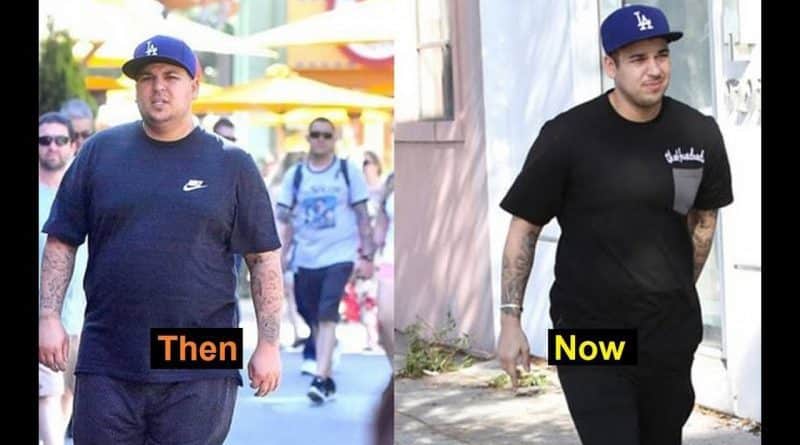$500,000 Rob Kardashian Weight Loss Bribe
You read that title correctly. Years ago, Rob Kardashian was reportedly offered a staggering $500,000 by his mother, Kris Jenner, for every 10 pounds of weight he lost. The goal was a 50-pound weight loss, which would have netted him a cool $2.5 million.
To add to the pot, HealthyWage, a company specializing in diet contests, publicly offered him another $50,000 to hit that same goal. This whole situation raises a fascinating question, one I’ve tackled with my clients for years: can you really pay someone to get healthy?
As a certified strength and conditioning coach with decades of experience, I’ve seen firsthand what truly drives lasting change. This story is a perfect case study on the difference between short-term fixes and long-term health. Let’s break down why a weight loss bribe, no matter the size, is usually a losing bet.
Disclaimer: This article is for informational purposes only and is not meant to treat or diagnose any condition. It is recommended that you speak with your doctor before starting any exercise program, changing your daily nutrition, or adding any supplements to your regimen.
Table of contents
Key Takeaways
- Extrinsic vs. Intrinsic Motivation: Financial rewards (extrinsic) can kickstart weight loss but often fail long-term because they don’t build internal drive (intrinsic), like the enjoyment of being active.
- Wealth Isn’t a Shortcut: Access to top trainers, chefs, and resources doesn’t guarantee success. Rob Kardashian’s story shows that without personal commitment, even unlimited funds are ineffective.
- Mental and Physical Health are Linked: Lasting physical change often requires addressing underlying mental health struggles. A CDC report noted that 43% of adults with depression were also obese.
- Sustainable Habits Over Quick Fixes: The goal should be creating small, repeatable habits. Experts like James Clear, author of “Atomic Habits,” argue that focusing on systems rather than just goals is the key to lasting success.

Who is Rob Kardashian?
Even if you’re not a fan of reality TV, you likely know the Kardashian family. Rob Kardashian is the youngest of the Kardashian siblings, brother to Kourtney, Kim, and Khloé. Born on March 17, 1987, he gained fame on the family’s show, “Keeping Up with the Kardashians.”
Unlike his sisters, Rob has largely retreated from the public eye. He has openly struggled with his health, weight gain, and mental well-being, which led him to step back from filming. Despite his lower profile, his business ventures, like the Arthur George sock line, and past TV appearances have secured him an estimated net worth of around $10 million.
Money Doesn’t Buy You Health

Let’s be direct, the idea of a $2.5 million weight loss bribe is flawed from the start. As a fitness professional, I see this as a classic example of confusing extrinsic motivation with intrinsic motivation, and it’s a critical distinction.
Extrinsic motivation is when you do something for an external reward. In this case, it’s money. It can be a powerful kick-starter. A 2022 study in JAMA Internal Medicine found that offering cash incentives did lead to more short-term weight loss. Participants who were paid about $440 for losing 5% of their body weight were more successful after six months than those who weren’t.
But here’s the problem: what happens when the money stops?
Intrinsic motivation is the drive that comes from within, you do something because you genuinely enjoy it or find it satisfying. Research consistently shows this is the key to long-term success. A review in the International Journal of Behavioral Nutrition and Physical Activity found intrinsic motivation was essential for sticking with exercise long-term. Without it, people often regain the weight. In fact, a meta-analysis of 29 weight loss studies showed that more than 80% of lost weight was regained within five years.
If you don’t learn to enjoy feeling healthier, stronger, or more energetic, no amount of money will keep you on track. You might take the bribe and lose the weight, but the underlying habits and mindset won’t have changed. It’s like being told to start exercising by a doctor; if you don’t want to do it for yourself, the advice often goes in one ear and out the other.
Rob Kardashian Proves Money Doesn’t Buy You Happiness

The entire Kardashian family is incredibly wealthy, but Rob’s public struggles with depression show that a big bank account doesn’t guarantee happiness. This is a crucial piece of the puzzle because physical and mental health are deeply connected.
According to a report from the Centers for Disease Control and Prevention (CDC), 43% of adults with depression were obese, compared to 33% of adults without depression.
This link is often a two-way street. Depression can sap your motivation to eat well and exercise, while the physical discomfort and social stigma of obesity can worsen feelings of depression. For someone like Rob, who has all the financial resources in the world, the challenge isn’t access, it’s internal readiness.
He could hire the best professionals in the industry. For instance, a top-tier celebrity trainer like Gunnar Peterson, who has worked with Rob’s sister Kim Kardashian, can charge up to $15,000 for a six-week program. He could also have a private chef design every meal. But if the underlying mental health issues aren’t being addressed, these tools are often ineffective. You can’t out-train a poor mental state, and no amount of money can buy the desire to change.
If It’s Not A Priority It Won’t Be Taken Seriously
Ultimately, a weight loss journey only succeeds when it becomes a personal priority. A temporary challenge for cash doesn’t create lasting change. We’ve all seen people crash diet for a wedding or vacation only to gain the weight back immediately after. That’s because the event was the motivation, not a commitment to a healthier lifestyle.
Instead of focusing on a massive, short-term goal, the key is building a system of small, sustainable habits. This is the core idea behind the bestselling book “Atomic Habits” by James Clear. He argues that getting 1% better every day through tiny, consistent actions is what leads to remarkable results.
This approach is also championed by Stanford behavior scientist BJ Fogg, whose “Tiny Habits” method focuses on making new habits incredibly easy to start. His model suggests that behavior happens when motivation, ability, and a prompt converge. For weight loss, this could look like:
- The Anchor Moment (Prompt): After I brush my teeth in the morning…
- The New Tiny Behavior (Ability): …I will do two push-ups.
- The Instant Celebration (Motivation): …I will say “Great job!” to myself.
This approach builds momentum without relying on willpower, which is finite. Rob Kardashian’s challenge highlights that even with a multi-million dollar “prompt,” if the personal motivation and habit-building systems aren’t there, the results are unlikely to last. I hope he finds his own reasons to get healthy, but I won’t be holding my breath waiting for a bribe to be the answer.
FAQs
Did Rob Kardashian ever lose the weight?
Rob Kardashian has had a fluctuating weight loss journey over the years. At various times, he has successfully lost significant amounts of weight, including a reported 50-pound loss, by focusing on a high-protein, low-carb diet and consistent exercise. However, maintaining the weight loss has been an ongoing challenge for him.
What is the difference between extrinsic and intrinsic motivation?
Extrinsic motivation comes from external factors, like receiving money, praise, or avoiding punishment. Intrinsic motivation comes from within, driven by personal enjoyment, satisfaction, or a sense of purpose. For fitness, extrinsic rewards can help you start, but intrinsic motivation is what keeps you going long-term.
Do financial incentives for weight loss work?
Studies show they can be effective for short-term weight loss. A 2022 study published in JAMA Internal Medicine found that cash incentives improved weight loss results over a six-month period. However, the challenge is maintaining the weight loss after the financial incentive is removed, as many people regain the weight without an internal drive to continue their healthy habits.
What are healthy ways to stay motivated for weight loss?
Focus on building sustainable habits. Experts like James Clear (“Atomic Habits”) suggest focusing on making small, 1% improvements daily. Also, find activities you genuinely enjoy, track your progress beyond the scale (like increased energy or strength), and set realistic, process-oriented goals rather than just focusing on the final outcome.
Source: Anne Gold of PressNewsBrief.com


*Disclosure: This article may contain affiliate links or ads, which means we earn a small commission at no extra cost to you if you make a purchase through these links. These commissions help support the operation and maintenance of our website, allowing us to continue producing free valuable content. Your support is genuinely appreciated, whether you choose to use our links or not. Thank you for being a part of our community and enjoying our content.
PLEASE CONSIDER SHARING THIS ON YOUR SOCIAL MEDIA TO HELP OTHERS LEARN MORE ABOUT THIS TOPIC.





